A bully chicken can cause a lot of problems in your flock. They can hurt other hens, and teach their bad behavior to the flock. Fortunately, there are ways for you to deal with a mean bird. I’m sharing some of the proven methods I’ve found to work.
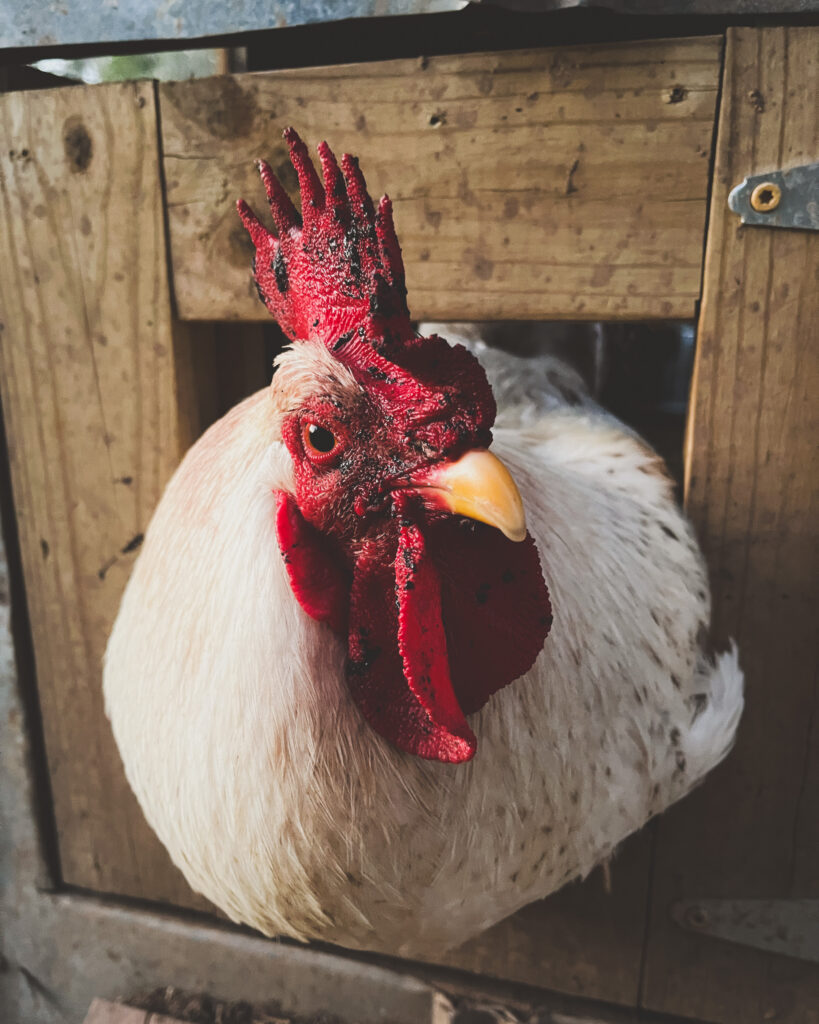
*This post may contain affiliate links which means I make a small commission at no extra cost to you. Read my full disclosure here.*
The Chicken Pecking Order
Whether you’re just starting out raising chickens, or you’ve been doing it for a while, you’ve probably noticed that chickens have unique personalities just like people. You’ve also probably noticed that chickens like to pick on each other.
This is because chickens have a natural pecking order. Pecking is the literal way they establish dominance over another member of the flock. However, a peck here and there is one thing, but actual bullying is another.
Generally, a hen trying to make it to the top of the pecking order will stop picking on the others once she has reached her goal. A bully chicken will continue to be aggressive for no reason.
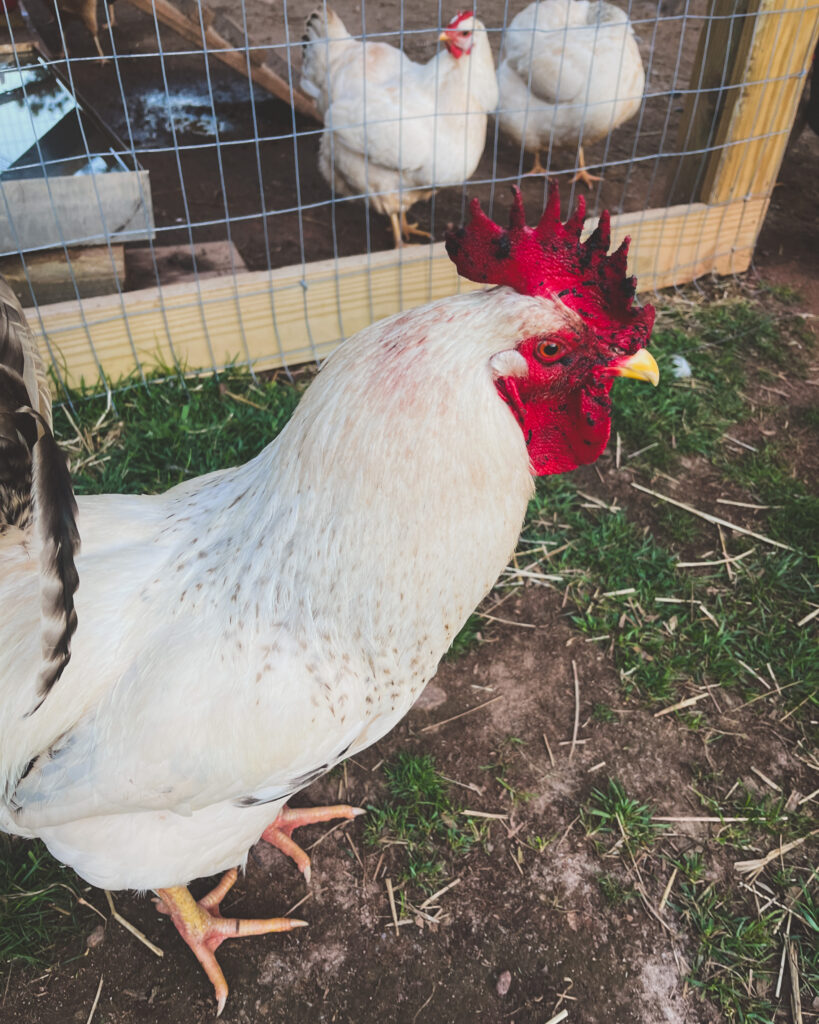
Here are some ways you can tell the difference in dominance and aggression in chickens:
- Is a chicken going after other chickens without cause? Chickens will naturally want the highest roosting spot, or to eat more of the food. They’ll peck to let the other’s know who’s in charge. However, a chicken that is aggressive toward another chicken without cause could be a bully.
- Is there feather pecking? This is the type of bullying I see most often in my coop. Inevitably feathers are going to get pulled at some point, but is there a chicken purposefully plucking feathers from another bird? Feather plucking is a nasty habit, and one that will spread throughout the flock if you don’t get it under control.
- Is blood being drawn? This is a big one because it can lead to the death of another bird. Feather pecking will eventually lead to an open wound. Chickens are omnivores, so bleeding wound will lead to cannibalism. If you have a bird causing wounds on another bird, this is very serious. They could “peck” the wounded bird to death.
If you have a bird with a wound, blue Kote will help heal the wound, and deter further pecking. Chickens can see color, so they’re attracted to red colors, but will generally not be drawn to blue.
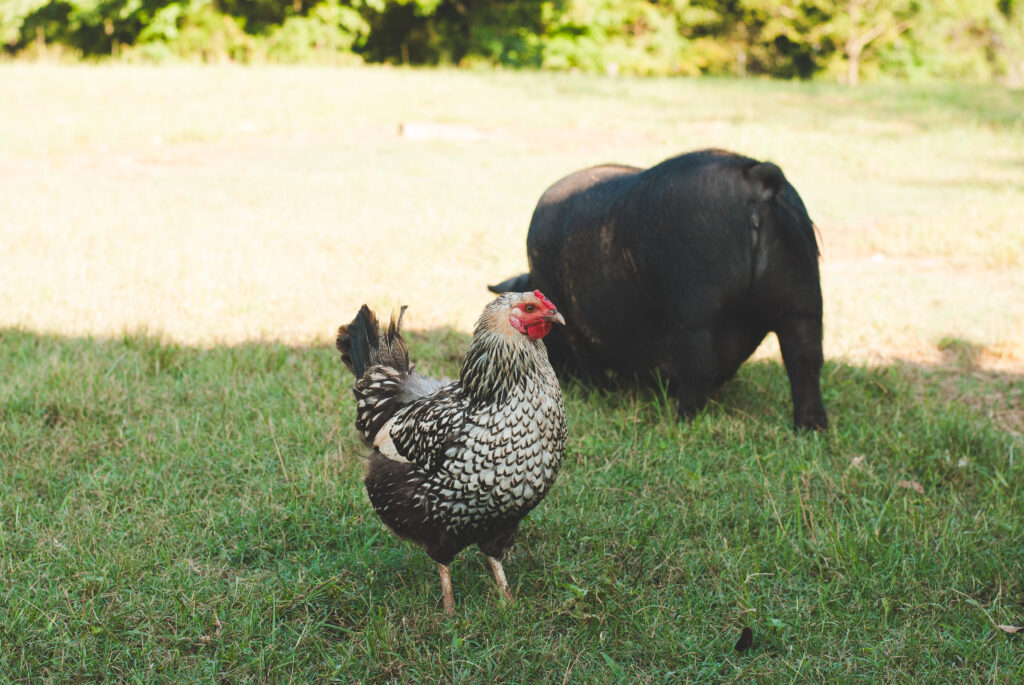
Consequences of Being Bullied.
Being bullied it can result in:
- Weight loss.
- Being timid or scared
- Wounds or injuries
- Loss of feathers
- Decreased egg laying.
- Illness and death
How to break a bully chicken?
This is a tough question. I recently had my small buff-laced polish suffer from extreme bullying. She had never been a target before, but I found her one afternoon missing all her tail feathers.
I believe some feathers were plucked which caused bleeding. This led to her getting pecked and suffering from a bad wound. The problem is, I’m not sure who did it, or if it was more than one hen.
When bullying is severe, immediate actions need to be taken.
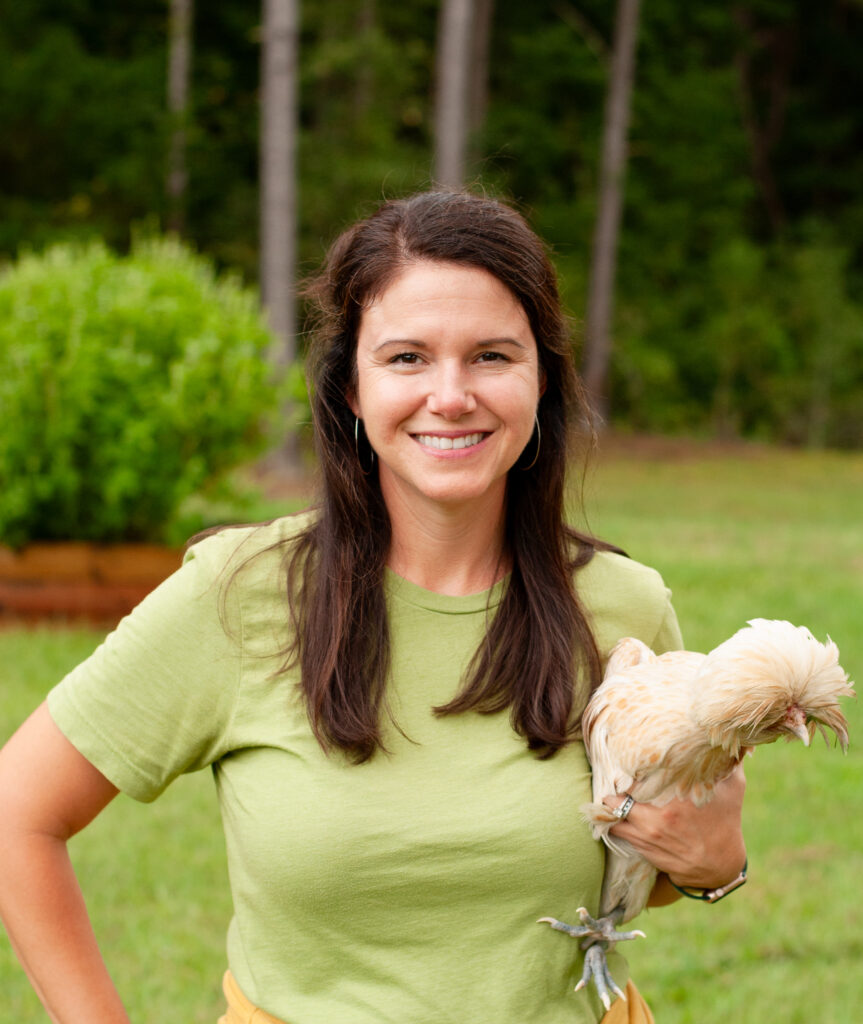
Remove the bully bird.
Removing the bully from the flock temporarily may alter the dynamics of the pecking order. You can do this by relocating the bully chicken for a 3-5 days to an alternative safe place.
When you return the bird to the flock she may fall down in flock rank, reducing her aggressive behavior.
Ensure the coop isn’t overcrowded.
Overcrowding will stress the birds out. They need their personal space. If there are too many chickens in a small coop someone is bound to get hurt.
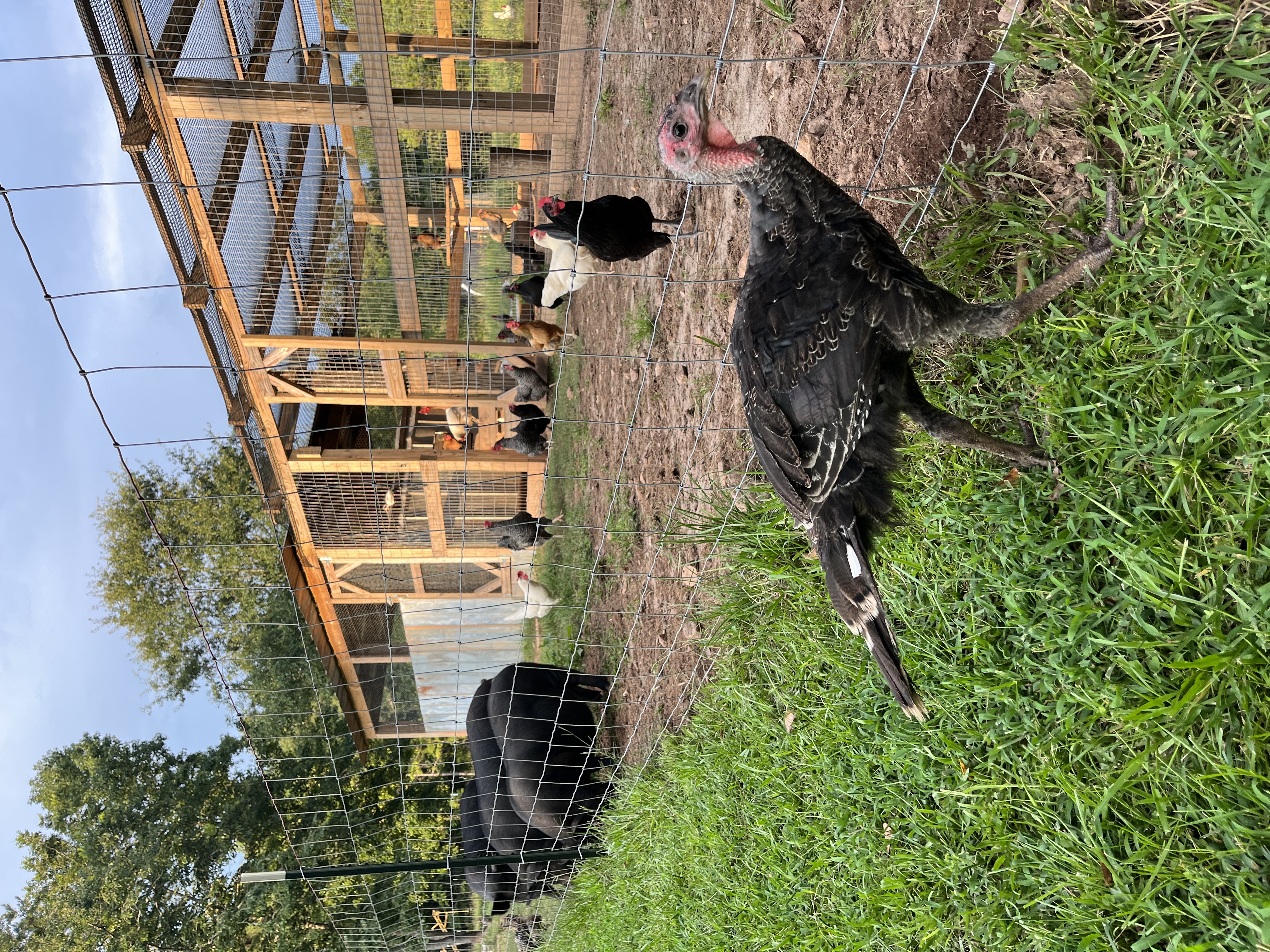
Give the birds some entertainment.
When chickens get bored, bad behaviors can develop. They’ll begin egg eating or feather pecking each other.
If your chickens are confined to a coop, it’s important to provide them with entertainment. This can be in the form of a fun dust bath, a swing & roost, or food to peck at.
I love these vegetable hanging hooks and use them in my coop. They’re a great way to get rid of produce scraps, and the chickens love them.
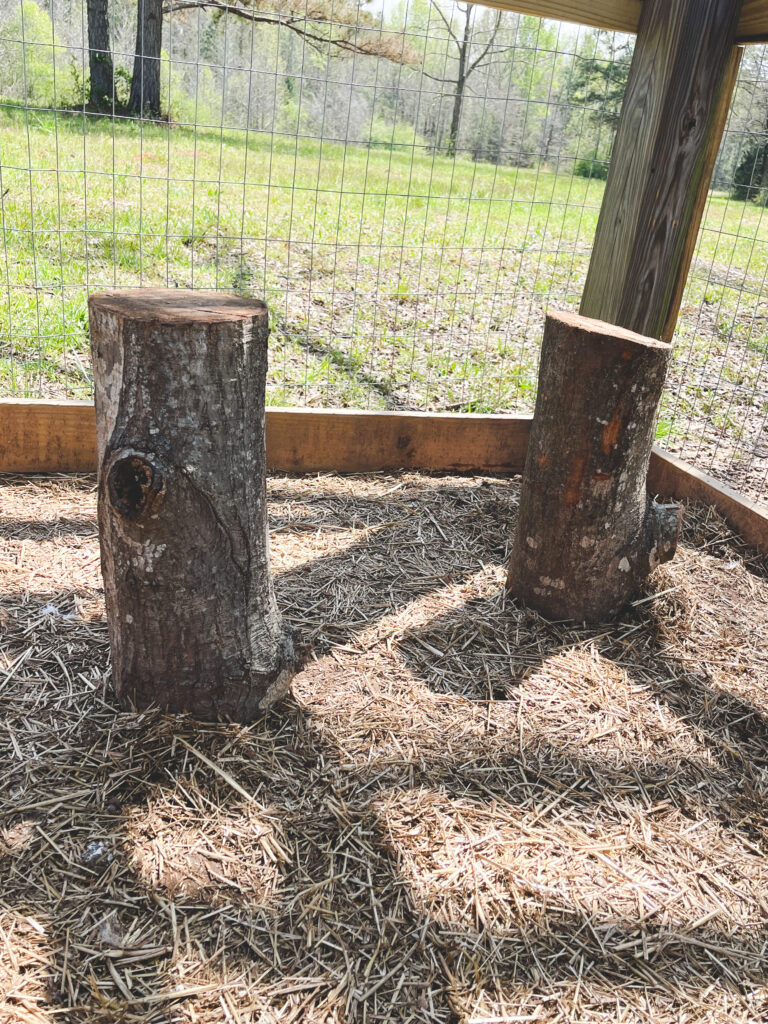
Add a rooster to your flock.
A rooster will naturally be at the top of the pecking order., and they’re great a keeping the peace. They don’t want to see their hens getting hurt, so they’ll keep bullying to a minimum.
If you live in an area that allows roosters, having one will change the whole dynamic of your flock. However, it’s important that you don’t have too many roosters. One rooster for every twelve hens is a good ratio.
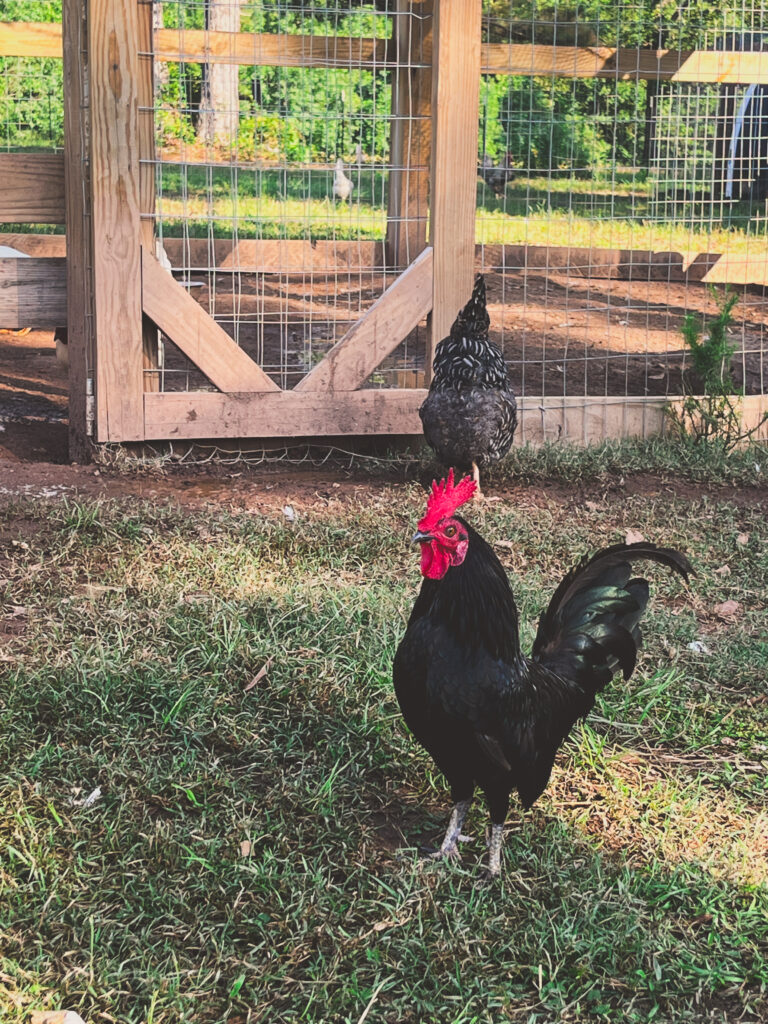
Free ranging your flock.
This is one of the best ways to prevent bullying. It gives everyone plenty of room to spread out. It also keeps the bully entertained and not focused on picking on weaker chickens.
If you work full time like me, this automatic chicken door was a game changer. It opens automatically at sunrise and closes at sunset. I don’t have to worry about my flock being safely closed in at night.

Provide extra feeding stations.
Chickens can be very protective over their food. If you’re noticing a lot of chicken drama around a feeder, try adding a second feeder or another feeding location. This will give the weaker chickens a place to eat without upsetting the more dominant ones.
I use this feeder in my coop for my smaller girls. It sits lower to the ground and is rodent proof. The larger dominant chickens don’t pay it much attention. I’m thinking that’s because the feed isn’t exactly visible. It works out great.
Add curtains to your nesting boxes.
Adding nesting curtains has a lot of benefits beyond bullying. Chickens are out of sight, out of mind animals. If a hen is broody or laying in a nesting box, she is a prime target for bullies. Nesting curtains prevent a bully from seeing the hen and pecking her.
Nesting curtains also help with egg eating. The hens can’t see well in the dark, making it more difficult to find an egg.
Removing a sick or injured chicken.
Chickens will naturally want to protect the flock from illness by removing a sick chicken. If you have a sick or injured bird, the rest of the flock will harshly pick on them. Having a bird that is consistently picked on could mean it is sick.
Remove any sick or injured birds from your flock immediately and provide a safe place for them to recover. You will need to reintroduce the bird to the flock once it is healed.
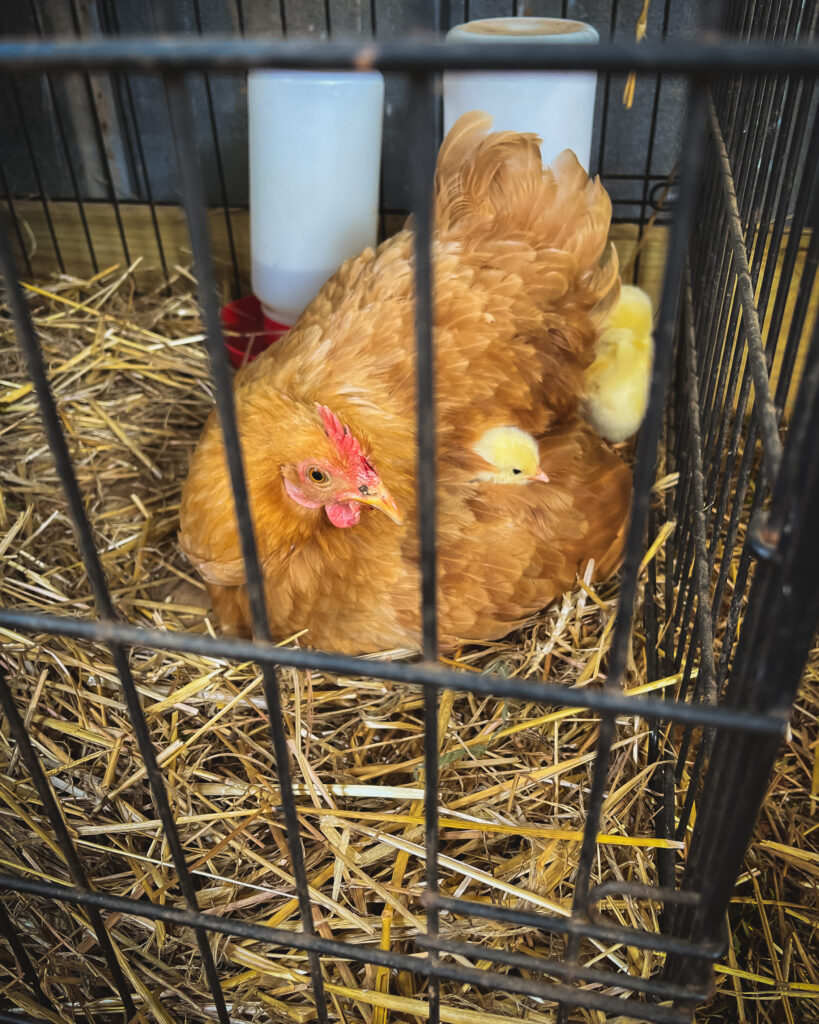
Keeping the flock free from stress.
Stress can have a big impact on the behavior of your flock. Chickens under stress can act aggressively towards other birds in the flock. Outside factors that will cause flock stress are:
- Predators
- Extreme Heat
- Extreme Cold
- Poor Diet
- Parasites such as mites
Try eliminating any stressors you can. Ensure you coop is a safe place for the birds to escape predators. Make sure the coop is free from any holes or openings a predator could fit through. Especially at night.
Ensure the coop has adequate ventilation, shade from the heat, blocks the wind, and that the flock has plenty of access to water.
A poor diet or not enough food will also impact the stress level of the flock. Laying hens need extra calcium to make those eggshells. Feed with added protein will help the flock maintain their weight and stay warm in the winter.
Give your flock a place to dust bathe to help prevent parasites such as mites. Birds with mites will be very anemic and can become sick.
Your flock may also be suffering from intestinal parasite such as worms. Giving the flock garlic and red pepper flakes in their food will help to prevent worms. I use this dewormer in my chicken feed for worm prevention.
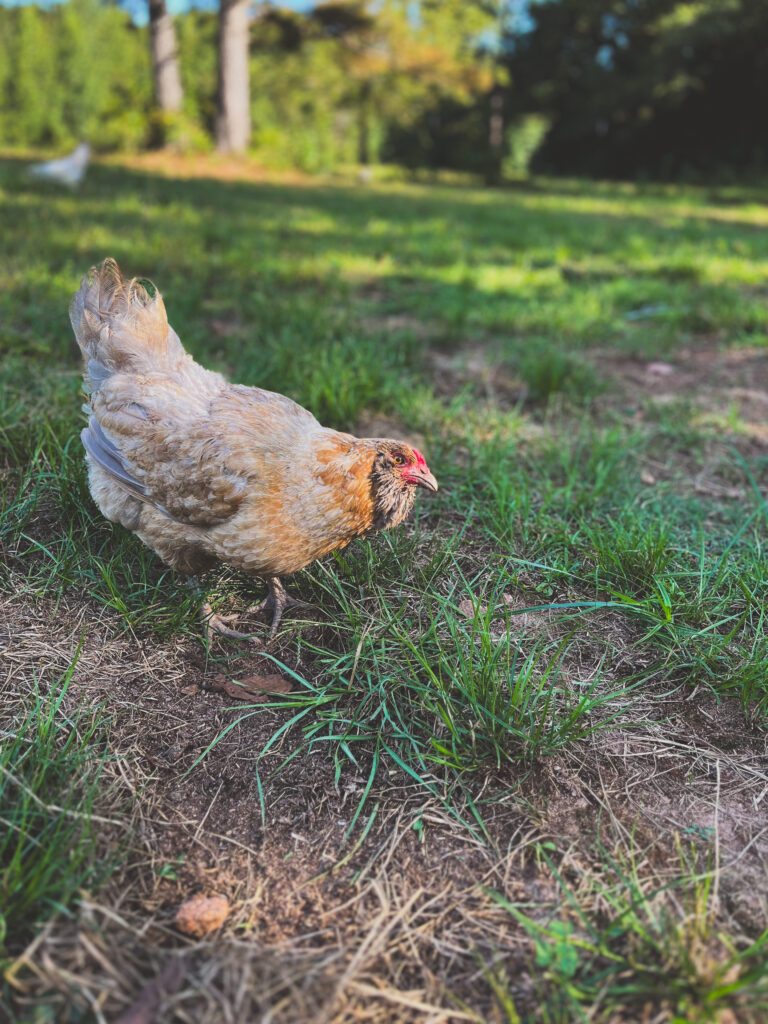
Culling or rehoming a bully bird.
Sadly, sometimes nothing you try will deter the bully chicken from hurting the others. In some situations, rehoming the bird to another flock in a different location may change the behavior.
In other cases, culling the aggressive bird is best for the safety and health of the flock. It’s not an ideal scenario but will save a lot of problems in the long run.
If you enjoyed this article, please share. Thanks for visiting my little farm!
More From The Farm
Keeping Chickens
How To Care For A Broody Hen
If you enjoyed this post, please share it! Thanks for visiting my farm.
hi!!!!